It is exciting to go camping off the grid with a campervan. However, if you want to go camping during winter, you must have a heat source to keep the interior of the van warm. Conventionally, camper vans come with a pre-installed furnace or space heater that is powered by a DC power supply of the van. But what if the camper suddenly runs out of battery in frigid weather?
Undoubtedly that will be a nightmare. A sudden power outage on the campsite can not only ruin your trip but also can put you in a critical situation. Especially with the sunset, the temperature of the weather starts to fall rapidly.
The water lines will also start to freeze, creating an uncomfortable situation for you. Hence, before going off the grid, you need to ensure a heat source that can save you from hypothermia without the need for electricity.
Plus, you must know some hacks to heat the camper without electricity in an emergency situation. To help you with that, we are going to suggest a few methods in this article that will allow you to heat your camper without requiring electricity.
How To Heat A Camper Without Electricity?
There are many methods that you can use to heat your camper van. Here are some of the best methods that we have found from our experience.
Portable Space Heater
Portable heaters are one of the best methods to keep your camper’s interior warm. There are many different types of space heaters available, including battery-powered, propane, gas, and even diesel-powered space heaters.
Using electric-based ceramic heaters can be a suitable option too. Besides electric heaters that require power from your house batteries or battery bank, there are heaters available that run on their own power source.
They are handy, easy to operate, and don’t cause emissions or make much noise. Also, they are typically small and best for personal use.
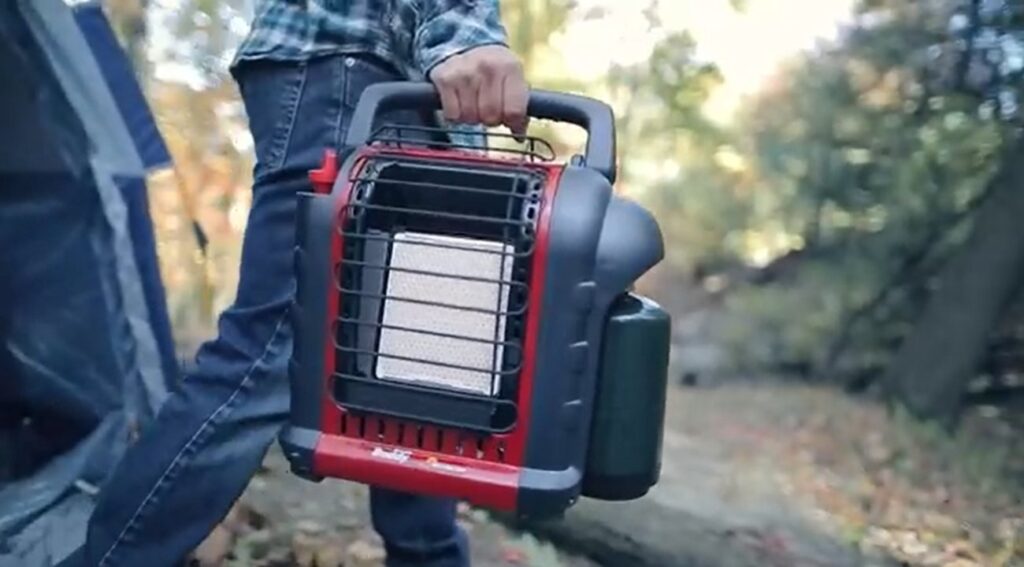
The most popular option seems to be propane or gasoline-powered heaters. They’re small yet powerful, and they don’t put any strain on your onboard battery bank, making them ideal for camping. In addition, they are dependable in freezing weather and may be used as a backup heating system if your primary heating system fails. These are good, low-cost, and handy if you don’t require a permanent heating solution. However, the problem with these heaters is they cause emissions, though in a very low amount.
Wood Stove
Installing a wood burner is another fantastic choice for heating a camper. Wood stoves are basically heat sources that use wood as fuel. There are several benefits of purchasing a wood burner for your camper, including the comfortable mood and pleasant scent it emits. In addition, these are effective for heating and are comparatively cheap.
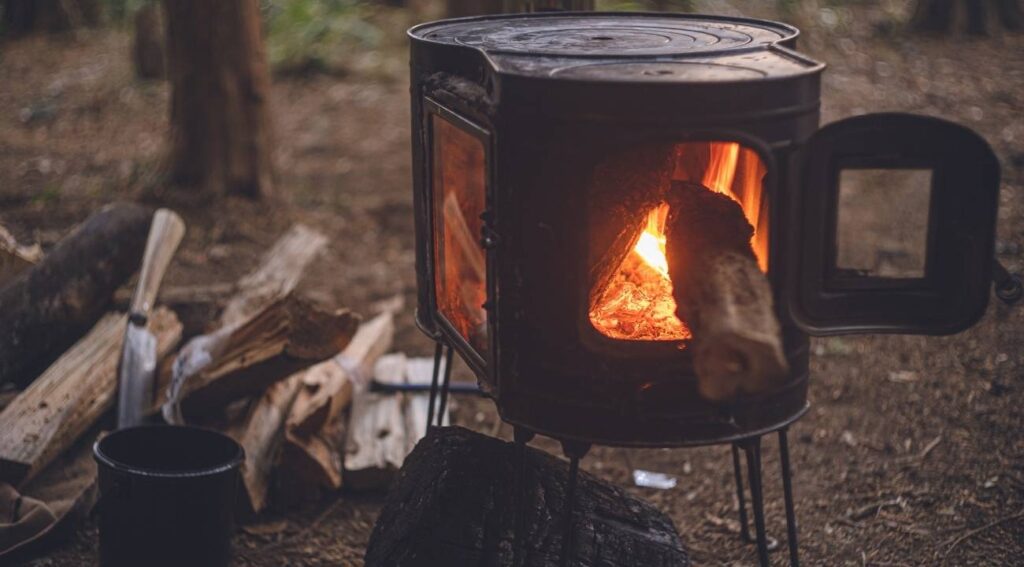
Dedicated wood stoves are available for RVs and campers. These models create a minimum amount of smoke that can be piped through a window. They are available in various form factors like floor-mounted and wall-mounted units. Moreover, if you like the feeling of sitting by a fireplace, the latest models of these stoves have faux fireplaces installed in them. However, they raise some safety concerns, so you have to be careful while using them.
Heat Insulation
To keep the interior of your camper warm, you must make it heat-insulated. Otherwise, no source will be able to heat your camper properly on a cold winter night as it will keep dissipating the heat.
A few popular methods to make your camper van heat-insulated include skirting, ceiling vents, and closing doors and windows properly.
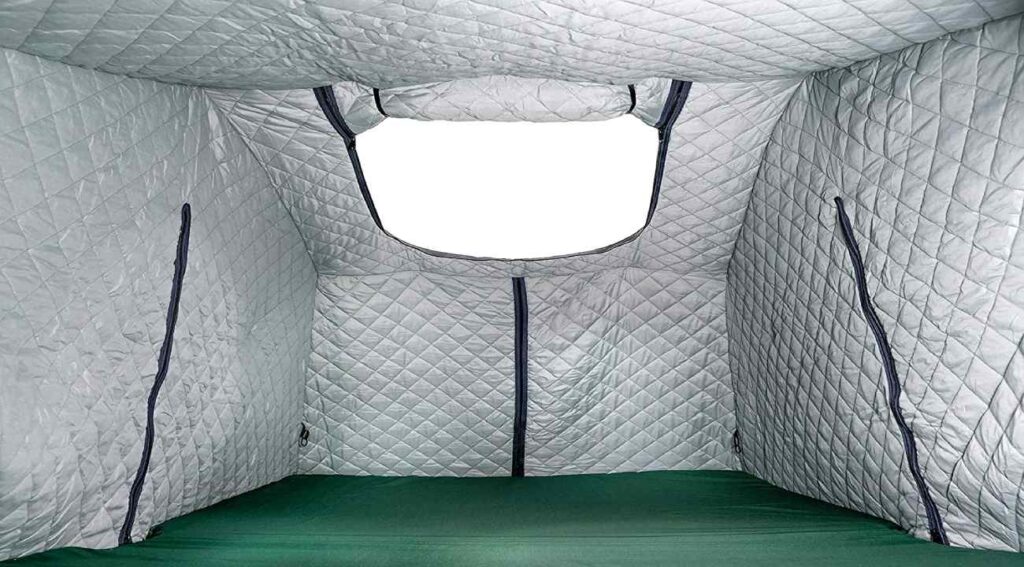
The vans mostly lose heat through the leaks. So, consider sealing them with rubber seals. You can also cover the doors and windows with blankets and other heat-resistant materials. Moreover, skirting can add an extra layer of protection against the cold.
It protects the camper’s underbelly from the cold and helps reduce the heat loss from the floor. Any waterproof covering that protects the camper’s underbelly from wind and snow will work as skirting. However, while insulating the van, make sure you don’t compromise on the ventilation.
DIY Methods
When a sudden power outage occurs in an emergency situation, and you don’t have any alternative heating source, you may rely on some DIY methods. These methods may not be the best options to heat your camper, but these can be a lifesaver in freezing temperatures. You can try putting a hot water bottle in your van. It’s a simple trick; you just have to boil water and fill some bottles with water. Then, when you keep the bottles inside the van, they will keep warming the interior by losing heat.
The same trick can be performed with stones too. Heated-up stones can hold the temperature for quite a long time. So, if you plant hot stones inside your van, they will be able to keep the interior warm for a long time. Plus, you can make campfires around the van to keep the surroundings warmer. The main problem with these methods is that they have a very limited capacity to heat, and the range is also very short.
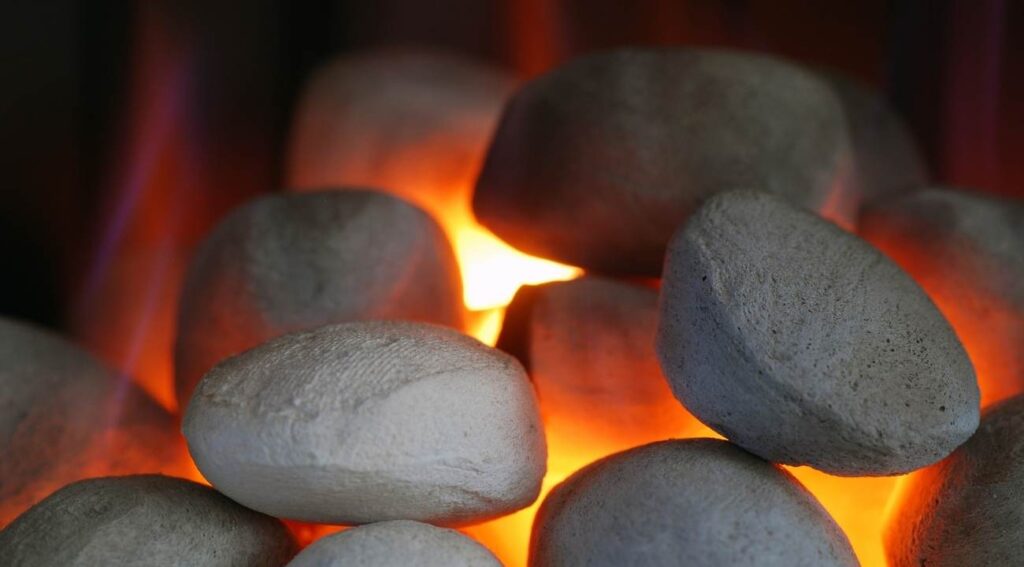
Safety Considerations While Heating A Camper
While using different measures to heat up your van, you need to keep in mind that they come with some risk factors. So, you must know the safety protocols before you decide which method you are going to use to heat your camper van.
First, make sure the space heater or wood stove is far away from any flammable materials or objects in the camper to avoid accidentally setting anything on fire. Propane or gasoline heaters produce carbon monoxide. So, never leave a space heater on for too long.
If no one is available to stop it, carbon monoxide can build up, or something can light up in flames. You must ensure your camper has enough ventilation to prevent carbon monoxide from building up inside. You can set a carbon monoxide detector inside the van to be on the safe side.
While making a campfire, make sure you keep a safe distance from the van, dry trees, or leaves. In addition, check to ensure that the fire-fighting equipment in your campers, such as a fire extinguisher or a fire blanket, is in good working order and easily accessible in case of any unexpected situation.
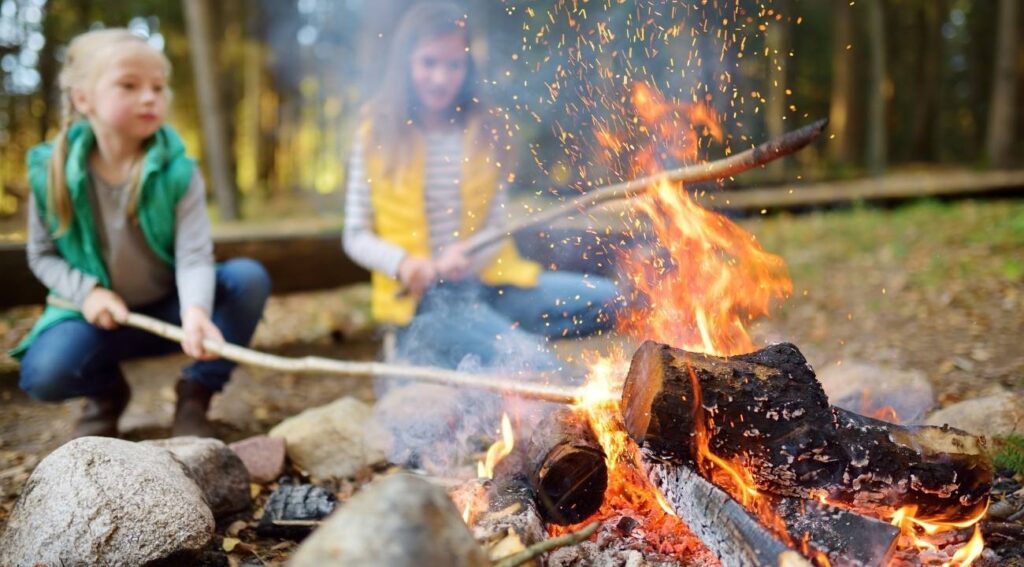
Bottom Line
If you want to go camping with your camper van throughout the winter, you’ll need to investigate different heating options to avoid mishaps. Warming a camper without power is easy with portable space heaters, proper camper insulation, and wood-burning stoves. However, we suggest you use more than one approach to be on the safer side.

Diana Miller, is a dedicated nature enthusiast and an outdoor adventurer. She began leading groups for excursions in her teens and never stopped. Following her passion for nature, she gathers her friends for outdoor trips every now and then. And for the last 10 years, she has executed workshops on backpacking, snow kayaking and traveling that included her main motive of lightweight packing while outdoors. During leisure, she loves planning for her next adventure.

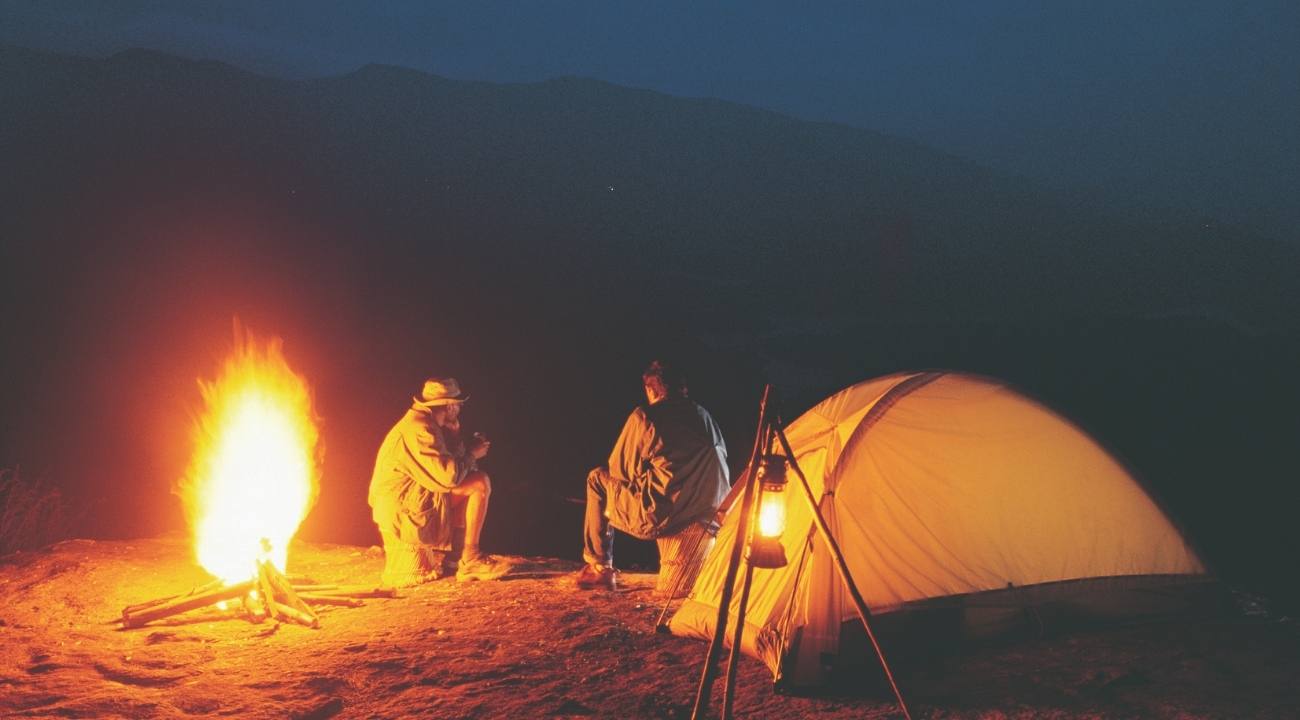







Leave a Comment